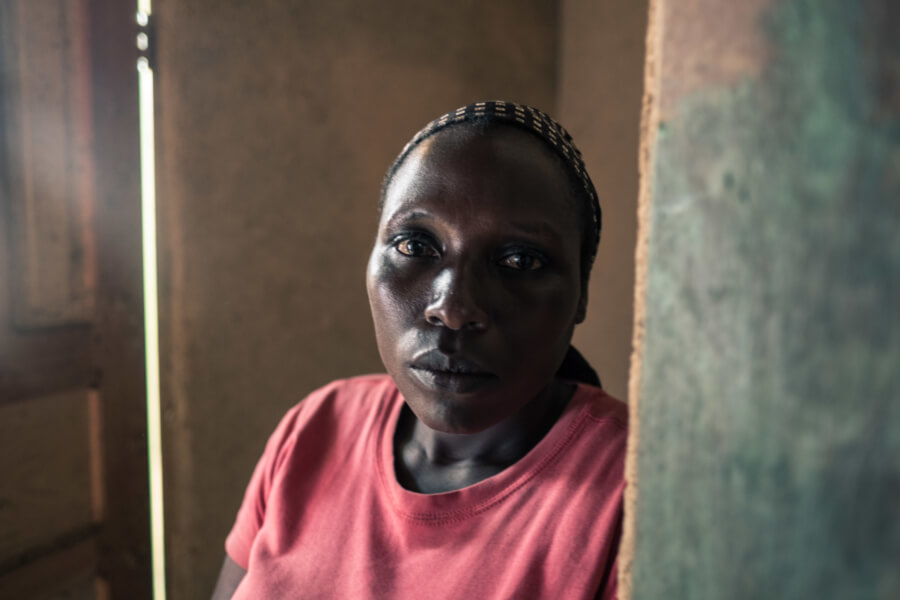
Kahindo’s story
Kahindo Kitakya Fazila has lost 10 family members to the Ebola virus, including her mother. Kahindo was sick and terrified herself.
Read moreCaritas International by region
Caritas International in Belgium
As members of the Panay-Bukidnon indigenous people living in the hinterlands of the Panay Mountain Ranges, the Inggo family is engaged in abaca production. Abaca or Manila hemp is a type of buff-colored fiber obtained from Musa Textilis that grows naturally in the Panay Mountain Ranges, and has been the major source of income among the Panay-Bukidnon – Akeanon since time immemorial.
The whole family must work together to make ends meet. The income that they get from abaca production is mostly spent on food and the school expenses of the children studying in the community primary school. As the head of the family, Eufrosimo takes care of the abaca plants in the forest, approximately three kilometres away from their home, a one hour walk for him. Analyn, his wife, takes care of their eight children. Their everyday routine starts at 4am when they wake-up. Analyn prepares food for Eufrosimo to take to the abaca plantations since he leaves before 5am and returns before dusk. She then assists her children in getting ready for school. While everyone is away, she cleans the house and maintains the vegetable garden around the house. When the children are back from school, they will collect water from a nearby spring and help their mother cook food for dinner while waiting for their father to get home so they can eat together.
After the super typhoon Haiyan, the Inggo family tried to fix their damaged home with the help of relatives in the community. They made a makeshift as their temporary shelter and were in this situation for more than a year before the Shelter Project of Caritas Belgium and Secours Catholic (Caritas France) was able to reach them.
In this makeshift shelter, they sleep and eat in the same space that they use as their living room. The living room gets wet whenever it rains and they really struggle when rain pours at night and everyone is asleep in it. The family does not feel safe whenever there are heavy rains with strong winds since the house does not have a good foundation. It literally shakes whenever someone walks or moves inside the house. The makeshift shelter is also not safe because it is erected along the banks of the Aklan River which is gradually shifting its channel. They also struggle with the lack of toilet facilities since the makeshift shelter does not have a toilet or a water source.
But HOPE was not far away and the family was able to celebrate Christmas of 2016 in a new shelter because they were chosen by the community to be included as shelter beneficiaries for Manika. With the help of the local Mayor, they were able to move to a safer place away from the danger of the river and to a location where there is potable water. They are now staying in a resilient shelter with a SPHERE standard (Humanitarian Charter and Minimum Standards in Humanitarian Response) living area for children where they have ample space to move, play and study. There is a kitchen that eases the hardship of Analyn in preparing meals for everyone. The shelter also has sanitary facilities with running water. The Inggo family is very grateful. They feel safe and happy now that their daily chores can be done comfortably and they see a better future ahead as their children can study well and they spend quality time with each other.